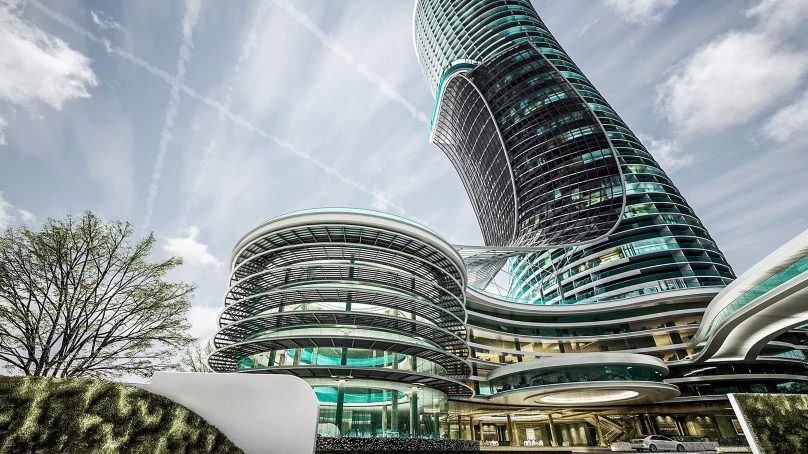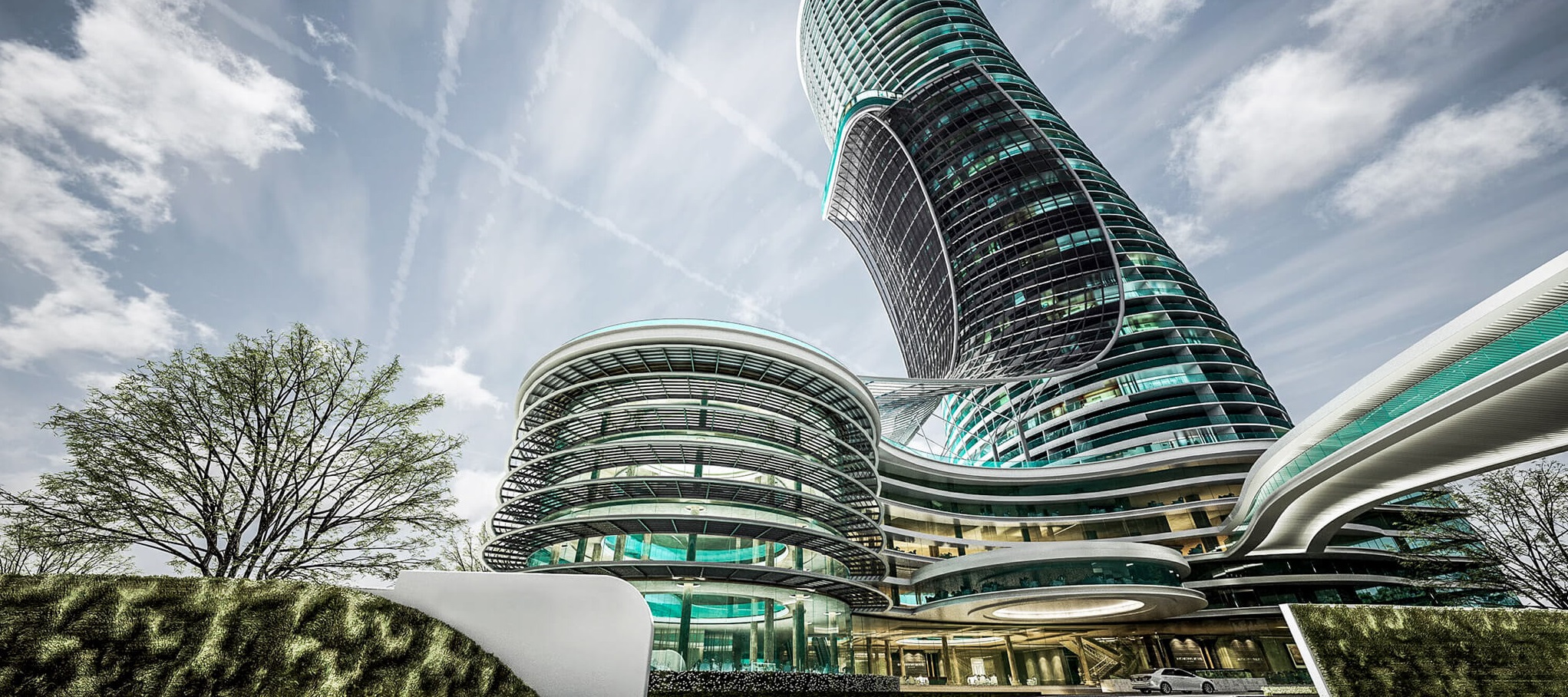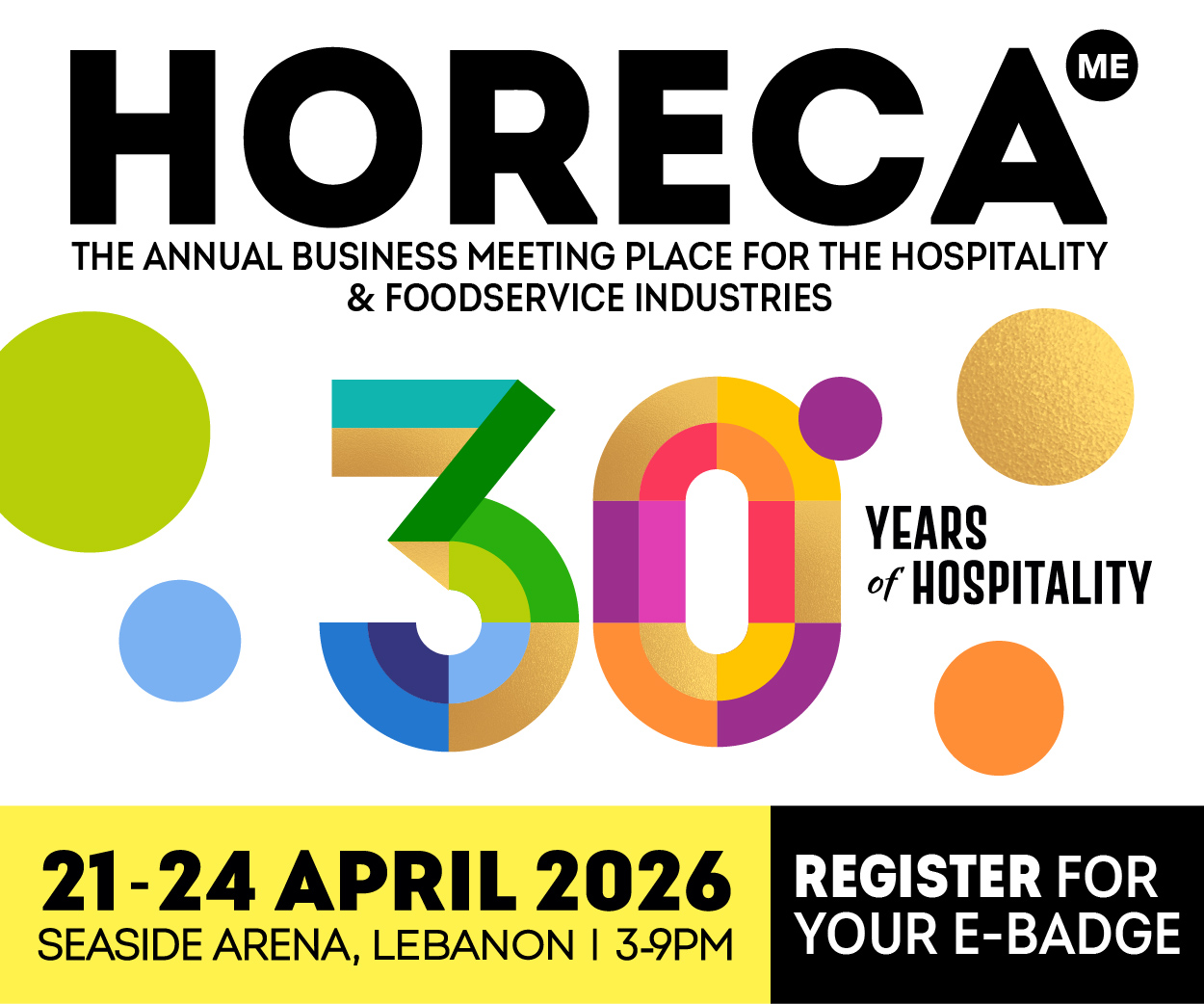

Architects, designers and operators are responding to emerging trends by incorporating innovative interior design, technology, and organizational solutions. These professionals anticipate significant changes across the industry in various areas, such as sustainable practices, technological advancements, and evolving guest preferences. Consequently, industry leaders are focusing on the integration of cutting-edge solutions to enhance guest experiences.
Key trends
Return to the grand hotel concept
Minimalist concepts are now giving way to updated opulent designs. Furthermore, the tendency is to draw inspiration from the historical grand resorts of the past. This trend combines existing functional preferences with the more elaborate aesthetics of visually stunning hotels, reinterpreted in a contemporary manner.
Hyper-personalized service in hotels
Guests continue to seek hotel experiences that go beyond traditional hospitality services, wanting more immersive, personalized encounters. As a result, hotels are transforming into destinations themselves, offering unique experiences that cater to individual guest preferences. In response, hotels will focus on providing a hyper-personalized approach to meet the specific needs of each guest.
To adapt, hotels are offering unique experiences tailored to guest interests, such as adventure, wellness, religion, and cultural events. Consequently, hotel staff will be tasked with enhancing guest interactions further, providing tailored services that ensure seamless and memorable stays.
Designers will support these changes through cultural considerations in their designs, creating more welcoming concierge areas and multifunctional public spaces. Additionally, they will incorporate one-of-a-kind in-hotel experiences, along with carefully selected furnishings and finishes that reflect guest preferences.
Technology can enhance both hotel design and guest experiences in ways we never previously imagined. However, many guests still seek human connection when they travel, so expect design trends balancing innovation and personal touch.
Regardless of where these changes fall on the spectrum, personalization and customization will remain a central aspect of hotel design. Hotel rooms will become smart spaces, allowing guests to control lighting, temperature and entertainment options according to personal preferences.
Hotels will also integrate interactive displays and AI-driven services, simplifying the check-in process for a more seamless guest experience. Technological advancements, such as digital concierges and voice-activated assistants, will further enhance convenience and efficiency for hotel guests.
Despite these digital options, the appeal of low-tech solutions will remain prominent, especially for guests wanting to unplug during vacation. These guests will still enjoy tactile experiences, focused on natural materials and meaningful human interaction during their stay.
Sustainable and responsible design in hotels
Sustainability is no longer an option; it has become a necessity for the future of the hospitality industry. New hotels will be able to capitalize on this shift by adopting more sustainable construction practices and technologies. Expect an even greater focus on eco-conscious construction methods that utilize sustainable materials, reduce carbon footprints, and integrate energy-efficient equipment.
Architects and engineers will increasingly specify sustainable, eco-friendly materials and systems designed to minimize waste and reduce operational costs. As a result, these practices will contribute to long-term cost savings and environmental benefits for hotels.
Additionally, both staff and guests will receive training on maximizing the effectiveness of sustainable practices, starting from the construction phase. This education will extend into daily operations, ensuring that sustainability becomes an integral part of the hotel experience.

Rafi Haikal,
Director of ASEAN Business Development – Urbahn Architects PLLC
urbahn.com
@urbahnarch






